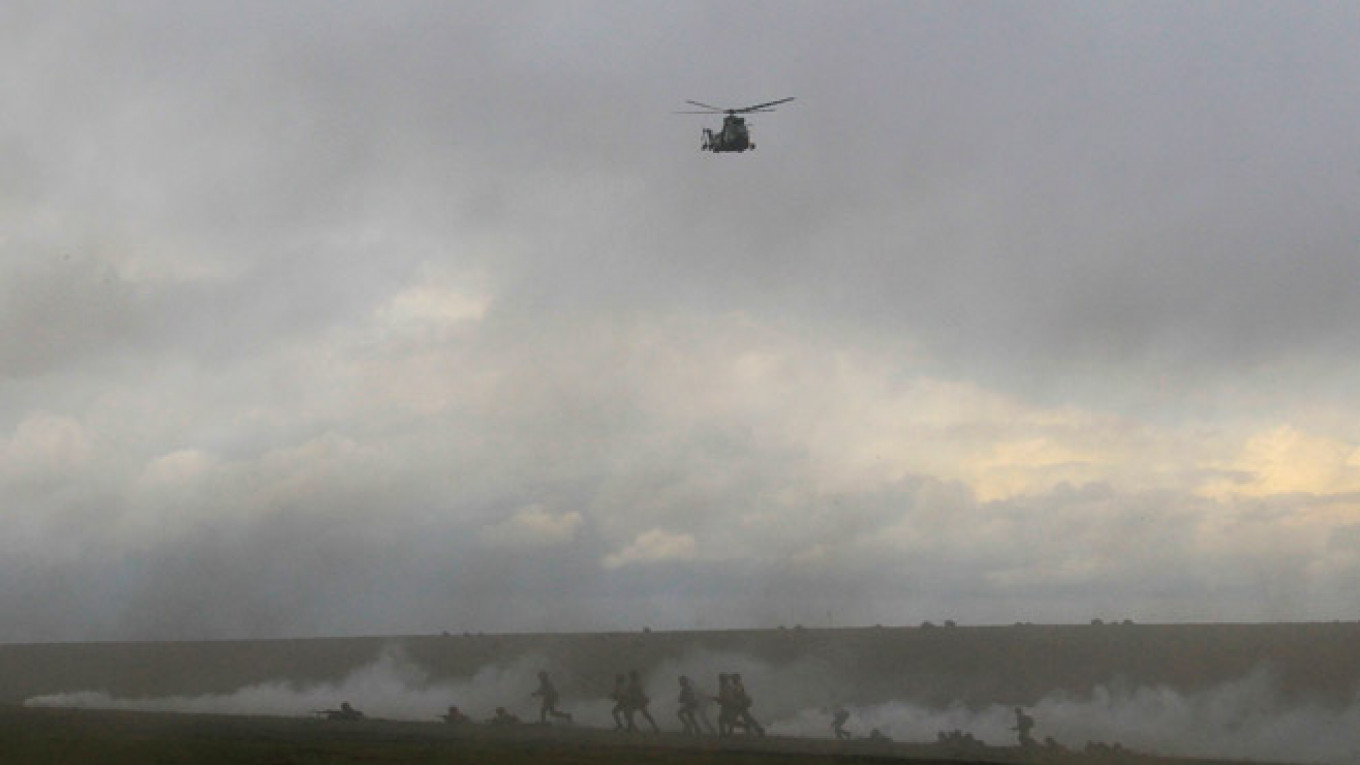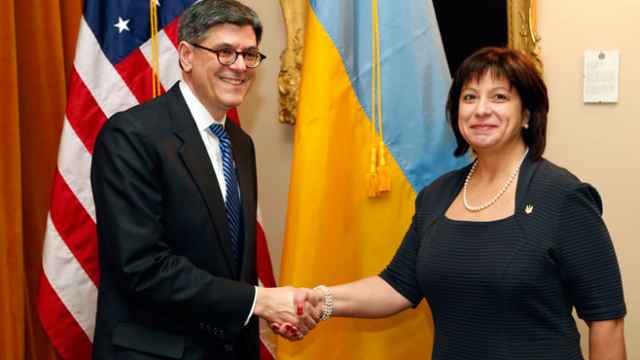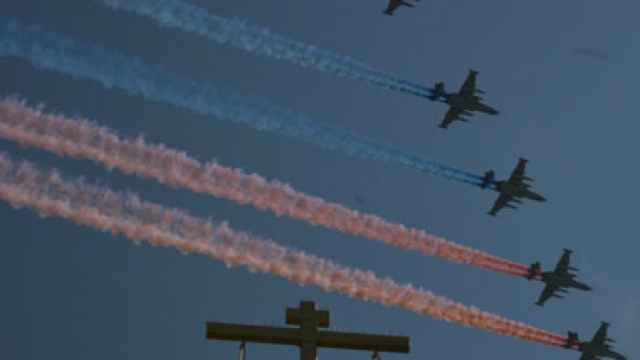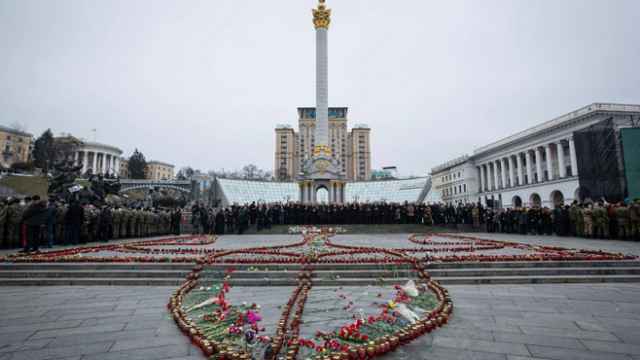Ever since the Maidan Revolution which overthrew Ukraine's former President Viktor Yanukovych early last year, Ukraine and Russia have been locked in a war on both the battlefield and the court of world opinion. The Kremlin in particular has been emphasizing the nationalist roots of organizations involved in the post-Maidan government as well as among some of Ukraine's volunteer private battalions.
While the Maidan revolution was driven largely by pro-European reformers disgusted with Yanukovych's kleptocratic rule, there have been a smattering of right wing neo-Nazi groups on the Ukrainian side.
The wide visibility of these organizations has damaged Ukraine's image in the West and provided Moscow potent cudgels with which to undermine Ukraine.
As part of its effort to support Ukraine, the U.S. military is sending 290 troops from the 173rd Airborne Brigade based in Italy to train elements of the Ukrainian National Guard.
In taking this step, U.S. President Barack Obama has chosen the middle ground between doing nothing on the one hand or embroiling the U.S. more deeply in the conflict by sending billions of dollars of lethal weaponry to Ukraine.
Unfortunately however, thanks to a Facebook post by Ukrainian Interior Minister Arsen Avakov, the 173rd's training effort has been overshadowed by another controversy.
In his post, Avakov stated that one of the organizations the U.S. would be training is the infamous Azov battalion — a claim firmly contradicted by a spokesperson for the American Embassy in Kiev.
To understand why Avakov's post is troubling, some background is in order. After the annexation of Crimea and the beginning of the war in eastern Ukraine, the post-Maidan government faced a dilemma.
As a result of decades of neglect and corruption, Ukraine's regular military had shrunk so badly that it could only afford to field a few thousand poorly armed troops. As a result, numerous privately funded armed groups sprung up to fill the gap.
Many of these so-called private battalions were funded by oligarchs such as Ihor Kolomoisky and/or were essentially extensions of leading Ukrainian politicians. One of these groups was the Azov battalion.
According to a post last year from a leader of Azov seeking to recruit Europeans to join the battalion, the Azov is the military wing of the Social-National Assembly of Ukraine (SNA), which he described as "Socialist, Nationalist and Radical." However the SNA is much more than that.
The SNA — and a closely related organization Patriot of Ukraine (PU) — were founded by Andriy Biletsky.
In a 2010 article, Biletsky himself outlined his beliefs, writing that "From the mass of individuals must arise the Nation; and from weak modern man, Superman … The historic mission of our Nation in this watershed century is to lead the White Races of the world in the final crusade for their survival: a crusade against Semite-led subhumanity."
Troops of the Azov Battalion also use the SNA logo on their banner, an inverted Wolfsangel, which was a widely used symbol in Nazi Germany, and many members are white supremacists or anti-Semites.
The reason Interior Minister Avakov would want to see the Azov battalion trained by American forces is clear. Avakov has been a prime sponsor of the Azov battalion, and has had a longstanding relationship with Azov's leadership dating back to his time as governor of the Kharkiv region.
Avakov supported the election of Biletsky to Ukraine's parliament, and arranged for Azov's former deputy commander and top PU official Vadim Troyan to be appointed as head of the Kiev region police.
While all private battalions — including the Azov — now come under the Ukrainian National Guard, many of these battalions are still closely associated with their founders and patrons.
In this respect, it is likely in Avakov's interests to see "his battalion" obtain the military training — and a cloak of legitimacy — gained from being associated with the U.S. military.
The problem though is that while making this association may be in Avakov's interest, it is certainly not in the broader interests of either Ukraine or the U.S..
When the American military is spending time and resources to train Ukrainian forces, it is unseemly of a leading Ukrainian politician to use this effort to try to embroil the U.S. in internal Ukrainian politics.
It is good that the American Embassy in Kiev has just clarified that the Azov is not among the battalions receiving U.S. training, but in the interim period articles with provocative titles like "U.S. to Train Nazi Troops in Ukraine" are proliferating on the Internet.
The American Embassy in Kiev should therefore tell Avakov in no uncertain terms that the U.S. does not appreciate his attempt to link the U.S. to a controversial neo-Nazi organization — an action which undermines both America and Ukraine's position in the court of international public opinion. The U.S. should expect better than this from an ally.
Josh Cohen is a former USAID project officer involved in managing economic reform projects in the former Soviet Union. He contributes to a number of foreign policy-focused media outlets and tweets at @jkc_in_dc
A Message from The Moscow Times:
Dear readers,
We are facing unprecedented challenges. Russia's Prosecutor General's Office has designated The Moscow Times as an "undesirable" organization, criminalizing our work and putting our staff at risk of prosecution. This follows our earlier unjust labeling as a "foreign agent."
These actions are direct attempts to silence independent journalism in Russia. The authorities claim our work "discredits the decisions of the Russian leadership." We see things differently: we strive to provide accurate, unbiased reporting on Russia.
We, the journalists of The Moscow Times, refuse to be silenced. But to continue our work, we need your help.
Your support, no matter how small, makes a world of difference. If you can, please support us monthly starting from just $2. It's quick to set up, and every contribution makes a significant impact.
By supporting The Moscow Times, you're defending open, independent journalism in the face of repression. Thank you for standing with us.
Remind me later.







